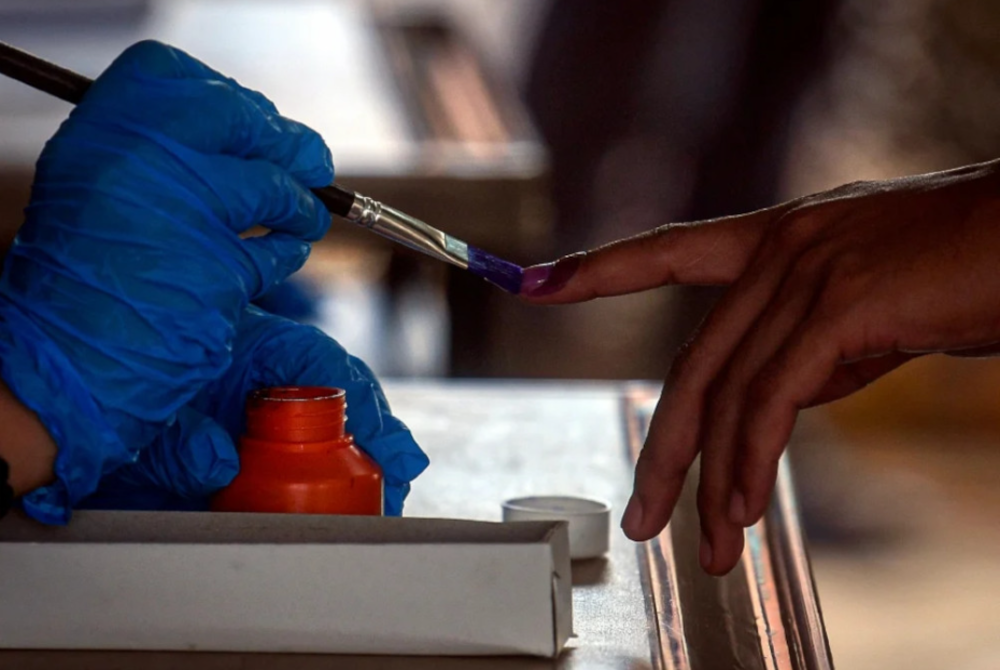GE15’s ‘crowded field’ not a big issue for voters, say observers
10 Nov 2022 08:47am

Image for illustrative purposes only - FILE PIX
A
A
A
Another 441 candidates are contesting in the state elections in Perak (59 seats), Pahang (42) and Perlis (15) as well as the Bugaya state by-election in Sabah.
Like a buffet spread where diners are spoilt for choice, voters, notably the first-timers, may have a tough time deciding which candidate deserves their vote.
Most political observers see the crowded battlefield as a sign of a flourishing democratic system and think it will not be a "big issue” although they agree some voters may be left confused.
If the party factor had played a crucial role in sealing Pakatan Harapan’s victory in the last polls, then this time around the candidate factor and issues close to the people’s hearts will determine who gets the vote on Nov 19, according to political analyst Dr Mohammad Tawfik Yaakub.
He said voters not only want to see new faces representing them but also political parties that are capable of fulfilling the pledges outlined in their election manifestos.
"Voters want new faces, not the same people (as their elected representatives). This is why we saw various coalitions presenting new candidates to the extent of dropping several political ‘giants’ from their line-ups,” he told Bernama.
The senior lecturer at the Department of Administrative Studies and Politics at Universiti Malaya said by presenting fresh faces, it is obvious the parties are trying hard to secure the support of young voters.
Election Commission of Malaysia data shows that 21.17 million Malaysians are eligible to vote in GE15 and over six million of them are aged between 18 and 29.
Mohammad Tawfik said the promises dangled by the candidates and their parties in their manifestos will surely be evaluated by voters whose main concerns are the cost of living and job opportunities.
"As you can see, many people today have jobs that don’t meet their qualifications... they are working just to make ends meet. Some are also forced to work overtime so that their families can live comfortably. This is among the issues candidates must focus on,” he said.
Political observer Dr G. Manimaran, however, has a different opinion on the fielding of new faces as candidates. He feels seasoned elected representatives are still relevant as they are appreciated by some sections of voters, especially party supporters.
"As such, they (voters) may reject the (new) candidates introduced by their parties,” he said, adding that in certain cases, the veterans can potentially influence the voting pattern.
He also opined that the party factor is still significant in influencing voters, especially when it comes to the new political alliances.
Political analyst Prof Dr Ahmad Martadha Mohamed also believed the party factor will play a huge part in determining how the votes are cast on election day.
According to him, Malaysians are more inclined to choose a party or coalition that assures a stable administration, rather than be swayed by the candidate factor.
He said candidates contesting as independents usually find it hard to win a Parliamentary or state seat because the people view them as "lone rangers” who will have to champion their causes all by themselves.
On whether the presence of a huge number of candidates will increase the voter turnout percentage, Ahmad Martadha said it will not have an impact on the number of voters turning up to fulfill their democratic obligation.
Instead, he believed that the competing parties will now have to work harder to persuade voters to take their side.
Political analyst Dr Jamaie Hamil, meanwhile, said GE15’s crowded field demands greater maturity at the ballot box.
"With so many candidates contesting this time, voters have more choice. This is where they (voters) have to be more mature so that their votes won’t go to a person who is not fit to be elected,” said the Universiti Kebangsaan Malaysia senior political science lecturer.
He said truly mature voters would vet the track records of their candidates and are not easily carried away by the personas of the professionals, celebrities, activists and politicians fielded as candidates by some parties.
While he sees the high number of candidates contesting in GE15 as a sign of a healthy democracy, he however feared the situation may cause political issues to trump other concerns such as the people’s welfare or the nation’s stability.
Meanwhile, understanding that it is not easy for voters, especially the younger ones, to choose maturely, both Mohammad Tawfik and Manimaran felt that the influence of family and peers has the potential to help shape the decisions taken by this group.
Mohammad Tawfik said family influence is an important element as youngsters would seek their parents’ advice on suitable candidates to vote for.
"The discussions they have with their friends will also help young people to make a decision,” he said, adding that political education in this country is not sufficient enough to enable youths to attain political maturity.
Manimaran agreed but said there were, however, some youths who were well versed in the nation’s politics and would take into consideration the various parties’ manifestos and pledges before making a decision on who to vote for. - BERNAMA














